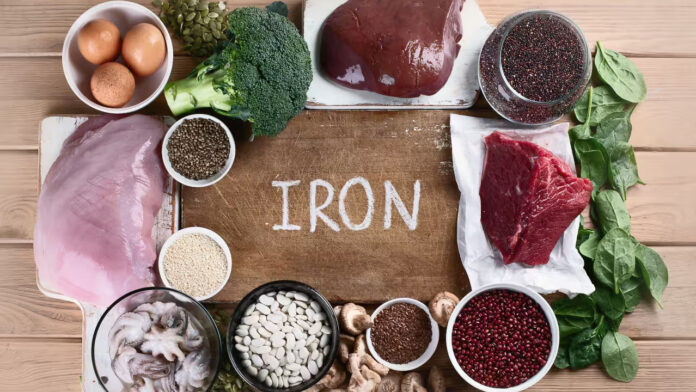Frequent fatigue and hair fall can be signs of iron deficiency, which is one of the most common nutritional deficiencies worldwide. Iron is a crucial component of hemoglobin, the protein in red blood cells that carries oxygen from your lungs to the rest of your body. When your body doesn’t have enough iron, it can’t produce enough healthy red blood cells, leading to a condition called iron-deficiency anemia.
How Iron Deficiency Causes Fatigue and Hair Fall:
- Fatigue: Without sufficient iron, your body struggles to get enough oxygen to its tissues and muscles, leading to persistent tiredness, weakness, and a general lack of energy. This fatigue can affect your ability to concentrate, perform daily tasks, and maintain an active lifestyle.
- Hair Fall: Iron deficiency can also impact hair health. Hair follicles require a steady supply of oxygen-rich blood to grow. When iron levels are low, the body prioritizes oxygen delivery to vital organs, reducing the amount available to hair follicles. This can cause hair to become weak, brittle, and more prone to falling out.
Iron-Rich Foods to Prevent Iron Deficiency:
Incorporating iron-rich foods into your diet can help prevent iron deficiency and its symptoms, such as fatigue and hair fall. There are two types of iron in foods: heme iron (found in animal products) and non-heme iron (found in plant-based foods). Heme iron is more easily absorbed by the body, but both types are important.
Heme Iron Sources:
- Red Meat: Beef, lamb, and pork are excellent sources of heme iron.
- Poultry: Chicken and turkey, especially dark meat, are good sources.
- Seafood: Oysters, clams, and shrimp provide a significant amount of heme iron.
Non-Heme Iron Sources:
- Legumes: Lentils, chickpeas, beans, and soybeans are rich in non-heme iron.
- Leafy Greens: Spinach, kale, and collard greens are great plant-based sources.
- Nuts and Seeds: Pumpkin seeds, sunflower seeds, and cashews offer a good amount of iron.
- Fortified Foods: Some cereals, bread, and pasta are fortified with iron.
- Tofu and Tempeh: These soy products are excellent for vegetarians and vegans.
- Dried Fruits: Apricots, raisins, and prunes are convenient, iron-rich snacks.
Tips to Enhance Iron Absorption:
- Pair with Vitamin C: Vitamin C can enhance the absorption of non-heme iron. Include foods like citrus fruits, bell peppers, tomatoes, and broccoli in your meals.
- Avoid Excessive Calcium with Iron-Rich Meals: Calcium can inhibit iron absorption, so try to avoid consuming high-calcium foods (like dairy) right before or after your iron-rich meals.
- Cook with Cast Iron: Cooking acidic foods (like tomatoes) in cast iron pans can increase the iron content of the food.
By ensuring you get enough iron through a balanced diet, you can help prevent the symptoms of iron deficiency, like fatigue and hair fall, and maintain overall health. If you suspect you have iron deficiency, it’s important to consult with a healthcare professional for proper diagnosis and treatment.



